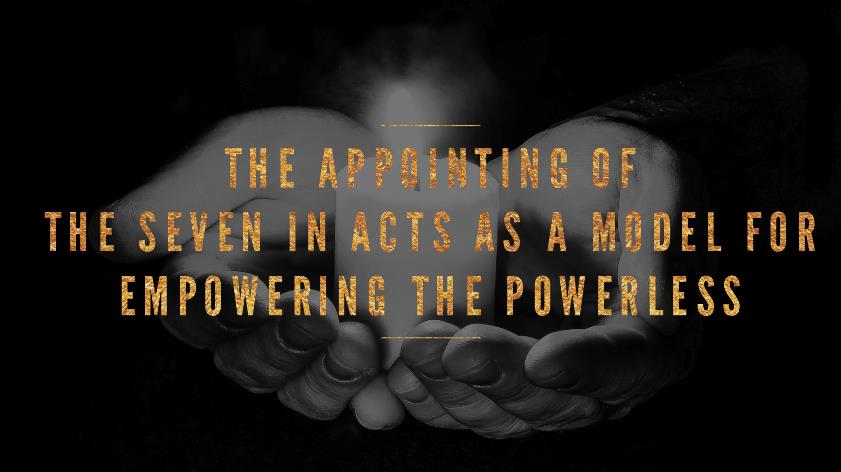The Appointing of the Seven In Acts as a Model for Empowering the Powerless

In Acts 6:1-17 we see a curious scene. We find ourselves in Jerusalem , and the fledgling church is growing and has set about providing food for the widows in Jerusalem. To be a widow at this time would have been a difficult life. Typically being a widow meant that you were too old to re-marry, and couldn't work. Caring for widows and orphans was a major part of Jewish culture and history (Deuteronomy 14:29, Psalm 68:5, Isaiah 10:2, Malachi 3:5 etc.), and was also a particular concern for Luke - the author of Luke & Acts (Luke 2:36-38, Luke 18:1-8, Luke 20:47, Luke 21:1-3, Acts 9:36-43). The section also distinguishes between two types of people there at the time: Hebraic Jews Hellenistic Jews Hebraic Jews were the natives in that place. They represent the dominant people group in that area. Hellenistic Jews were Jews who had moved to Jerusalem from outside of Palestine (diaspora Jews), therefore their culture and language were much more influen...
